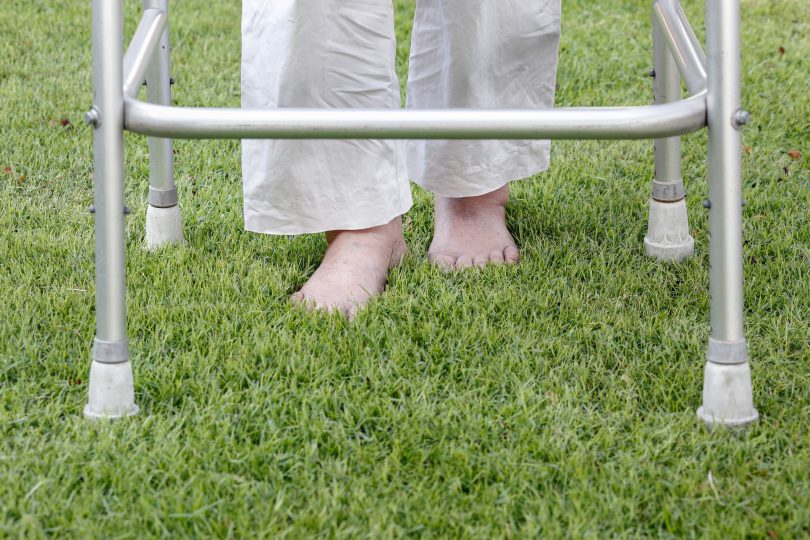
The 12-month study will look at whether walking barefoot reduces the likelihood of falls for the elderly.
Can going barefoot help prevent elderly people from having falls? It might seem a bit chilly to contemplate but that’s exactly what University of Canberra PhD researcher Susan Antcliff is trying to find out.
Ten years after she became a barefoot runner herself, Ms Antcliff is recruiting participants for a 12-month study to investigate if walking barefoot can make elderly people less susceptible to falls.
Ms Antcliff, a researcher with the Faculty of Health’s Research Institute for Sport and Exercise, said that as we age, we become more susceptible to falling in part because of a diminished sense of proprioception, or the awareness of where the body is in space.
“It is possible that walking barefoot improves proprioception because the nerve receptors in the skin of the sole and ankle are subject to greater stimulation,” Ms Antcliff said.
“Stronger neural pathways should be better able to relay sensations and messages to the brain as one walks, enhancing position and movement awareness.”
Ms Antcliff said that walking or running barefoot also strengthens muscles in the feet and legs and has flow-on effects for the nerve receptors in the muscles themselves, which are the other main source of proprioceptive signals to the brain.
“Walking barefoot fully engages the complex system of foot mechanics, which affects how your knees, hips and core muscles work,” Ms Antcliff said.
“Stronger foot and leg muscles can benefit your entire body.
“We have such an intricate, interconnected system of movement, and barefooting is an easy, accessible way to significantly and positively improve many aspects of it, which I hope will contribute to better body awareness and reduce the likelihood of falls.”
Participants will have their falls monitored during the first nine months of the year-long study, with participants’ performance on a number of proprioception-related tasks tested at three monthly intervals.
The last three months will involve a randomised controlled trial where the effects of barefoot walking on these metrics can be assessed. The program will involve walking barefoot on a range of different surfaces, such as grass and concrete.
“Every location we use will be thoroughly checked to ensure participants’ safety and comfort,” Ms Antcliff said.
Ms Antcliff is looking for participants aged 65 or more, particularly those who have had a fall in the last five years, so that she can assess whether the program is likely to be beneficial in reducing falls.
To sign up for the study, contact Ms Antcliff on 0460 402 184 or send an email to Susan.Antcliff@canberra.edu.au.












